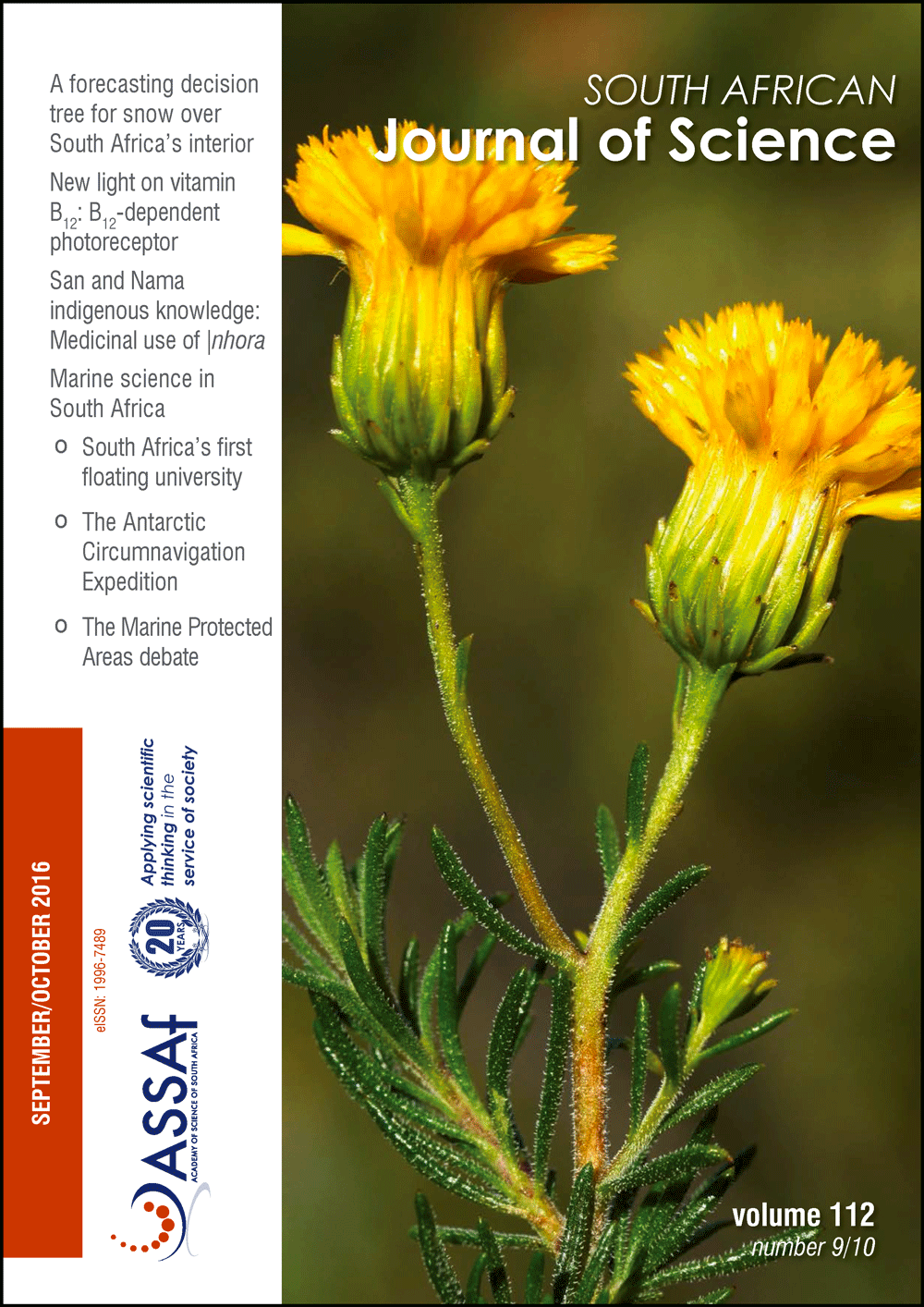Pesticide management practices among rural market gardening farmers near Harare, Zimbabwe
DOI:
https://doi.org/10.17159/sajs.2016/20150443Keywords:
organophosphates, pyrethroids, poisoning, counterfeit, agrochemicalsAbstract
In 2014, we carried out a survey in Chinamhora and Chihota communal lands on the outskirts of Harare city, with the aim of understanding pesticide management practices among market gardening farmers. The farmers grew vegetables that mostly included tomatoes, cabbages, rape, cucumbers, onions and carrots, and they used mainly organophosphates and pyrethroids to control pests. A questionnaire was administered to 119 male heads of households across both study areas. The questionnaire contained 13 closed-ended questions in three sections: source and quality of pesticides, handling and use, and storage and disposal of pesticides used to protect crops. The study identified numerous gaps related to the handling of pesticides. Although the quality of labelling and packaging can largely identify the quality of pesticide, most of the farmers (77.3%) could not distinguish between genuine and counterfeit pesticides; approximately half (47.9%) of the farmers were not concerned about expiry dates; 27% did not observe post-spray periods; and 63% did not take precautions according to colour-coding of the pesticides. Also of concern were the large numbers of farmers who were not using protective coveralls (54.3%); a substantial number who were not using knapsacks for spraying (21.8%); poor storage of the pesticides, as shown by the variation in storage facilities; the use of empty pesticide containers for domestic purposes (20.2%); and lack of strict adherence to recommended dose levels, with some farmers (28.6%) merely estimating the dilution of pesticides. Training through outreach programmes is recommended.
Significance:- Identifies gaps in the way pesticides are used and stored by rural market gardening farmers.
- Highlights the need for government agricultural extension workers to hold regular workshops for farmers.
- Indicates the need for government ministries to monitor counterfeit pesticides.
Published
Issue
Section
License

All articles are published under a Creative Commons Attribution 4.0 International Licence
Copyright is retained by the authors. Readers are welcome to reproduce, share and adapt the content without permission provided the source is attributed.
Disclaimer: The publisher and editors accept no responsibility for statements made by the authors
How to Cite
- Abstract 528
- PDF 568
- EPUB 211
- XML 257












.png)